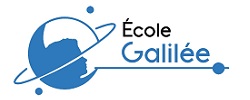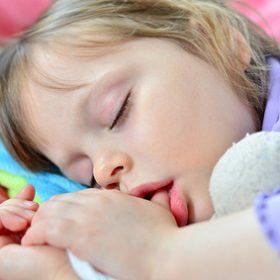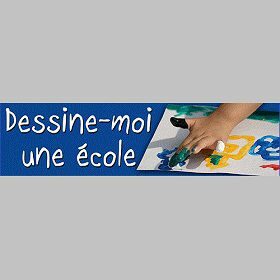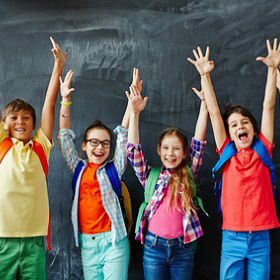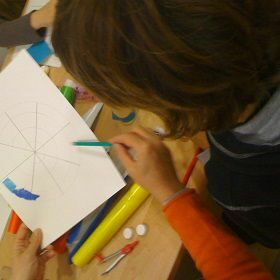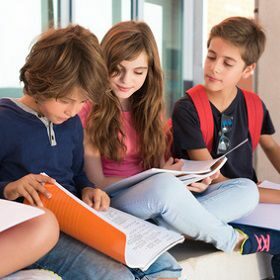Nursery section
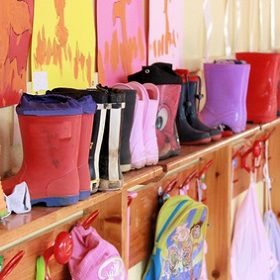
We are a bilingual English school in Paris located in the heart of the 16th arrondissement. Our bilingual kindergarten comprises three levels: preschool and kindergarten.
All three classes are fully bilingual, following a dual curriculum. The bilingual kindergarten allocates 50% of instructional time in English and 50% in French, in line with the French National Education Program. Children are welcomed from the age of two and a half, engaging in playful English learning activities.
Class sizes are limited to a maximum of twenty children, and there is an option for half-time attendance.
Daily timetable
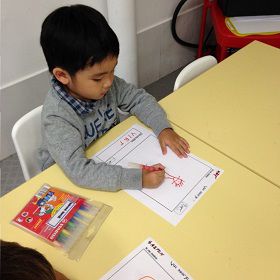
Creating a tranquil and organized environment in the Nursery class is essential for enhancing concentration and learning. Accordingly, our daily timetable has been meticulously crafted to align with the natural rhythm of the children. Our educational approach revolves around alternating periods of intellectual focus, engaging manual and artistic activities, and designated times for play and recess.
In the morning, emphasis is placed on the teaching of fundamental skills, including English lessons facilitated by a certified teacher. Reading, using the phonics method, writing, and numeracy are introduced when a student demonstrates interest. During workshops, students are grouped based on their individual proficiency levels. Evolutive activities, tailored to each child's learning pace, ensure that every child can progress at their own speed—whether they excel, as seen in the case of gifted children, or progress within average parameters.
Communication with the children is grounded in the principles of Nonviolent Communication, a technique designed by the psychologist Marshall Rosenberg. This approach fosters a positive and empathetic exchange, creating a supportive and inclusive learning environment for all students.
Recesses and Afternoon Activities

Every day, children at Galilée School are given the opportunity to spend 1 hour and 30 minutes in Parc Sainte Périne after lunch. This time is dedicated to meeting their needs for exercise, social interaction, and contact with nature. The school is committed to adapting itself to the children's needs and abilities, prioritizing their well-being. If desired and necessary, regardless of age, children may also stay at school for a nap, ensuring a flexible and accommodating approach.
During this outdoor time, children can express themselves, engage in stimulating activities, play, grow, and interact with other children in a safe and respectful environment.
In the afternoon, the focus shifts to artistic awakening, expanding the children's understanding of the world, and engaging in free and creative games. Additionally, Sport and Physical Education are incorporated into the daily schedule, conducted entirely in English.
Class organization is designed to encourage children to participate in setting up and dismantling materials used in their activities. This approach instills a sense of responsibility and promotes autonomy from an early age. A diverse range of materials is made available to them, facilitating the development of fine motor skills through specific gestures such as pouring, screwing, tying, buttoning, and cutting. This hands-on approach enhances their motor skills while fostering a sense of independence and accomplishment.
Learning English in the Early Years
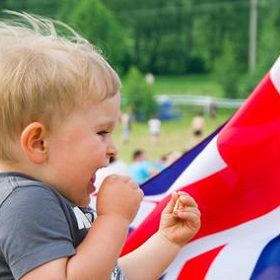
Language learning begins playfully in kindergarten. Experienced teachers exclusively communicate with children in English, offering essential instruction for gifted children. Daily sports activities are conducted in both English and French, utilizing interactive teaching methods based on real-life situations.
Learning a language is not just about linguistics; it involves discovering another world, teaching method, and culture. École Galilée has consistently excelled in Cambridge English Exams, achieving a 100% pass rate from Starters to KET level since 2010.
Physical Education
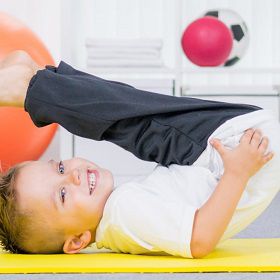
At Galilée, students engage in three to four hours of Physical Education per week, with the specific duration depending on the cycles. This instruction is conducted in English by a certified teacher who is dedicated to this subject within the school.
Aligned with official guidelines, Physical Education is designed to enhance physical capacities, motor development, and physiological fitness through a variety of sport and artistic activities. It plays a crucial role in helping students master their social and physical environment by improving both social and motor development, including ergomotricity. Furthermore, Physical Education contributes significantly to transforming the motor skills of the children.
The curriculum not only provides an introduction to physical and sport activities but also incorporates artistic elements. Beyond addressing the students' inherent need and desire for exercise and play, it fosters a sense of effort and perseverance. Through Physical Education, children develop a better understanding of themselves and others, learning essential skills to maintain physical fitness and overall health. This holistic approach ensures that students not only gain physical prowess but also acquire valuable life skills that contribute to their well-rounded development.
Acting and expressing yourself with your body
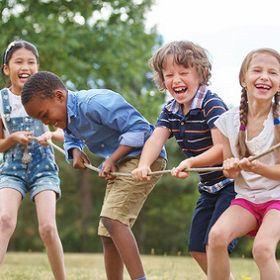
In Nursery, the integration of physical activity and body experience plays a pivotal role in a child's holistic development— encompassing motor, sensory, emotional, and intellectual aspects. This is achieved through the exploration, expression, and enactment of familiar environments, gradually expanding into more unconventional settings.
Children experiment with the full range of possibilities their bodies offer. They learn to act safely while taking measured risks, exerting effort, and adjusting their energy levels. The children articulate their feelings, name the activities performed, and identify the apparatuses and objects they interact with. Engaging in both free and guided physical activities in diverse environments allows gifted children to develop motor skills, including running, climbing, jumping, rolling, sliding, balancing, handling (moving, pushing, pulling), and refining their skills in throwing and catching.
By participating in activities governed by rules, children enhance their adaptability and cooperation skills. They gain an understanding of the utility and challenges inherent in collective work, fostering teamwork and interpersonal skills.
Incorporating artistic and expressive activities, such as circle dances, dancing games, dance, and mime, provides opportunities for children to master gestures and develop their imagination. These activities contribute to a well-rounded educational experience, nurturing not only physical prowess but also artistic expression and creativity.
.
Benefits of a Bilingual Curriculum for the Child
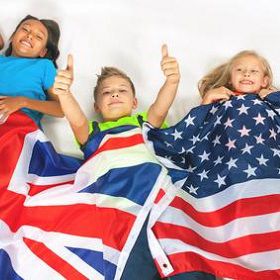
Language learning is a distinctive feature of our bilingual preschool in Paris. All three classes are fully bilingual, fostering open-mindedness from the earliest stages. Unlike traditional schools emphasizing written language, our approach focuses on spoken language, providing comfort in using English in everyday situations. This prepares children for entry into international bilingual schools after elementary school.
Objectives of Our School
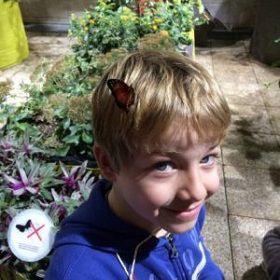
With 13 years of experience, our bilingual preschool in Paris tailors teaching to each child's uniqueness. Recognizing the challenges faced by gifted children (HIP) in traditional schools, we leverage their differences as assets. Our school aligns with the national education program, enhancing it with a bilingual curriculum and early art instruction from the first grade. The pedagogical team aims to help children realize their potential through firm and benevolent education.
